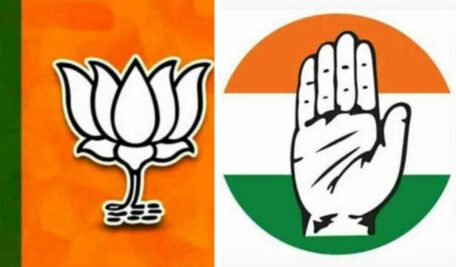Opinion: Staying connected in digital age
The antidote to shallow connections is not to abandon social media but to recalibrate its role in our lives

By Viiveck Verma
In the digital age, friendships are just a click away. Social media platforms like Instagram, Facebook and TikTok have redefined what it means to connect. With over 4.8 billion social media users worldwide, our social lives are increasingly intertwined with the digital world. But beneath the veneer of likes, shares and comments lies a question worth exploring, what is the impact of social media on real-life friendships and connections?
Also Read
On the surface, social media appears to foster relationships. It allows people to stay connected across time zones, share personal milestones instantly, and even rekindle old friendships that might have faded otherwise. However, the ability to reach out to someone, no matter where they are, creates only an illusion of closeness. And this accessibility raises deeper questions about the quality of these connections. Studies too reveal a paradox.
Breadth over Depth
While social media users often report having more online friends, they also report feeling lonelier in real life. Research published in the American Journal of Preventive Medicine found that young adults with high social media usage were more likely to experience feelings of social isolation. It seems that endless scrolling, double-tapping, and reacting to stories often serve as placeholders for meaningful interaction rather than replacements for it.
One could argue that social media platforms, by design, prioritise breadth over depth. Algorithms reward frequent posting, not thoughtful communication. The result? We are bombarded with carefully curated versions of each other’s lives; polished snapshots of vacations, celebrations, and achievements. While this might create a sense of belonging, it often fosters comparison and insecurity. Scrolling through endless feeds of seemingly perfect lives can leave us feeling inadequate and disconnected, even from those we call friends.
Use social media to enhance, not replace, real-life interactions, schedule that long-ignored coffee date, and pick up the phone and call
Moreover, the performative nature of social media complicates authenticity. Conversations that once unfolded organically now feel rehearsed, edited and optimised for public consumption. The pressure to present an idealised version of oneself can erode vulnerability, the very foundation of true friendship. In this digital theatre, the lines between connection and performance blur, leaving many to wonder whether their online interactions are genuine or transactional.
Younger Generations
The impact of social media on younger generations is particularly pronounced. For many teenagers and young adults, platforms like Snapchat and TikTok have become primary avenues for social interaction. While these spaces allow for creative expression, they also introduce new forms of peer pressure. The fear of missing out (FOMO) has been amplified, as has the pressure to be constantly available and responsive. Ghosting, subtweeting and online feuds have become modern social dynamics that shape relationships in ways previous generations never experienced.
Force for Good
Yet, to dismiss social media entirely would be shortsighted. It has undoubtedly democratised connection, breaking down barriers of geography and accessibility. For marginalised communities, it provides a lifeline, a space to find like-minded individuals, build networks and share stories. Activism, support groups and global movements have thrived in the digital ecosystem, proving that social media can be a force for good when wielded thoughtfully.
The question, then, is not whether social media is inherently good or bad, but how we use it. Like any tool, its impact depends on intention. For friendships to thrive in the age of social media, balance is key. Meaningful relationships require time, effort and presence — moments that cannot be fully replaced by emojis or quick replies. We must also reconsider our definition of connection. Is it measured by the number of followers and likes, or by the depth of conversations and shared experiences?
Real-life friendships often thrive in spaces where imperfections are visible, where silences are as meaningful as words and where the digital filters fade away. The antidote to shallow connections is not to abandon social media but to recalibrate its role in our lives. Use it to enhance, not replace, real-life interactions. Instead of scrolling endlessly, schedule that long-ignored coffee date. Rather than relying on comments, pick up the phone and call. Celebrate milestones offline as much as online.
Technology will continue to evolve, but the human need for connection will remain timeless. Friendships that withstand the test of time are built on shared memories, trust and vulnerability, things that no algorithm can manufacture. As we navigate this digital era, the challenge is to ensure that our relationships are not reduced to notifications but enriched by genuine moments of connection. In the end, the heart of friendship lies not in the virtual world but in the real one, where screens fade, and faces light up, not from pixels, but from presence.

(The author is founder and CEO, Upsurge Global, co-founder Global Carbon Warriors and Adjunct Professor – EThames College)
Related News
-
Couple elected as chairperson and vice-chairperson of Nirmal Municipality
2 hours ago -
Telangana municipal polls: BRS pockets 18 municipalities
3 hours ago -
Inorbit Mall Cyberabad hosts Valentine specials, interactive games and live performances
3 hours ago -
Jangaon chairperson election postponed amid high drama
3 hours ago -
Editorial: Showcasing India’s tech prowess
3 hours ago -
Health Minister orders suspension of absent Jogipet doctors
3 hours ago -
Telangana government initiates preparations for first fully digital Census 2027
3 hours ago -
Eshwar Sai bags ‘double’ in Hyderabad Open Tennis Association tournament
4 hours ago




